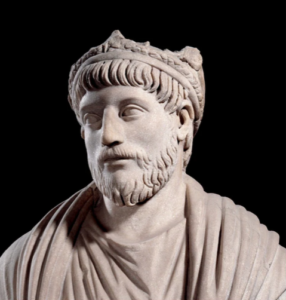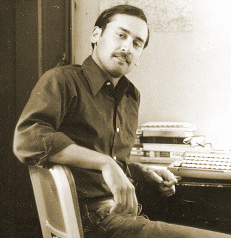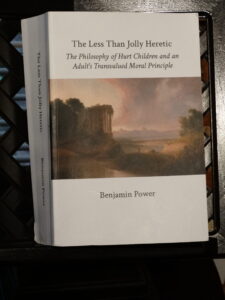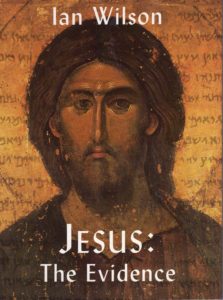I am still missing an instalment of Revilo Oliver’s article but before I put it up I would like to say something about that essay. This passage from Oliver—:
They [the Aryans] are burdened by the horrible guilt of not having committed suicide, a guilt they can expiate only by taxing themselves to hire their enemies to destroy them. They must love their enemies, but hate their own children. Especially in once-great Britain and the United States, the crazed Whites are not only subsidising the proliferation of their vermin and legislating to inhibit the reproduction of their own kind, but are importing from all the world hordes of their biological enemies to destroy their posterity.
—made an impression on me. It made me think about my eternal criticism of the Judeo-reductionism of the American racial right, which has failed to realise that it is whites themselves who have hired their enemies to destroy them (consider, for example, the number of pro-Israel people Trump has chosen for his new cabinet). It is more than clear, as William Pierce once said, that if the Aryan doesn’t get the monkey (Christianity) off his back he will not survive.
Precisely because the monkey is carried by whites on both sides of the Atlantic, Benjamin observed the following in his latest email today:
Dear César,
I am reminded today of another outright example of ersatz Christians jeopardizing white racial struggle. As far as I recall, you suggest that in order to wake up and defend/attack ourselves in the UK we must pass through various stages, starting at stage 1 with the men getting angry enough at their circumstances to want to protect their own homes and families. I see something today, written by Blair Cottrell, but highlighted by Mark Collett, the head of Britain’s main nationalist group, would be a hinderance to this, shamefully encouraging head-in-the-sand cowardice and advising, in false pedagogy, to relinquish hatred. I remember making the comment before that these sinister group leaders seem to act like official counter-countersubversives. I’m sure they’re not, but their pacifist gatekeeping is infuriating. I was really hoping someone would take you up on your radio station podcasts idea. In the worst case scenario you could deliver monologues, or take questions/discussions after a short gap window, where listeners could use their own AI software to translate their (presumed) English to Spanish remarks then email the translated .wav files to you.
Anyhow, this is what Mark recommends:
If a person has ugly thoughts, it begins to show on the face. And when that person has ugly thoughts every day, every week, every year, the face gets uglier and uglier until it gets so ugly you can hardly bear to look at it.
I do believe this is true.
It’s why it’s important to psychologically protect yourself from certain people and circumstances.
It’s completely reasonable to resent the state, the suburbs, traffic, the condition of the culture, the 12 Indians in a rental across the street yelling jibberish at all hours of the night, etc., but only up to a certain point is it healthy to hate.
You need to remove yourself on occasion and allow yourself the space and time to reset & be thankful for what’s good. Your soul will thank you for it.
Mischaracterising healthy adult hatred as ‘ugly thoughts’ was duplicitous. By taking a reasonable idea and placing it in unreasonable context, he might as well work for Prevent. I think to begin to successfully cross to the other bank of the Rubicon one must truly hate their country.
Best regards,
Ben
Collett doesn’t even strike me as a pure Englishman from the point of view of his phenotype. I guess his genotype is compromised by racial garbage. But the important thing is that as long as the English don’t hate they will never get ahead. Not a hatred like Rudyard Kipling advocated against the Germans in WW1 but, now, a hatred of the whole British culture because of what they did since WW2.
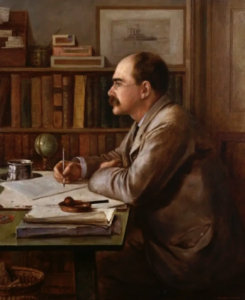 Incidentally, Oliver’s essay is so important that I will merge it, after the sixth instalment, into a single PDF to be accessed in the featured post, ‘The Wall’. But as I no longer want to edit that article, I will upload ‘The Wall’ again on 1 January 2025, including the link to Oliver’s article.
Incidentally, Oliver’s essay is so important that I will merge it, after the sixth instalment, into a single PDF to be accessed in the featured post, ‘The Wall’. But as I no longer want to edit that article, I will upload ‘The Wall’ again on 1 January 2025, including the link to Oliver’s article.
It is impressive that the viewpoint of The West’s Darkest Hour has existed for decades in the US but that very few have picked up the torch that Oliver left lying on the ground (National Alliance has published Oliver’s essay in its entirety, which I will only complete on this site until tomorrow).

